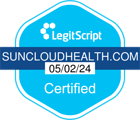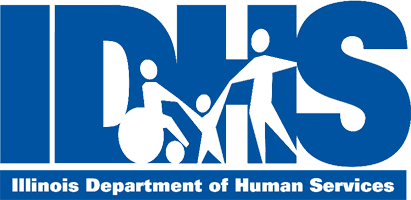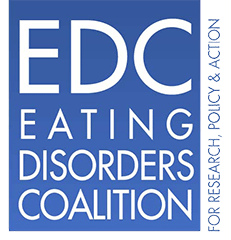
Psychiatrist and CEO, Kimberly Dennis, welcomes Dr. Nicole Avena, Princeton and Mount Sinai expert on highly processed foods, sugar and eating, to SunCloud Health.
Interviewed by Kimberly Dennis, MD
Featured expert on highly processed foods, sugar, and eating:
Nicole Avena, PhD
Associate Professor of Neuroscience at Mount Sinai School of Medicine
Visiting Professor of Health Psychology at Princeton University
Why is your work so controversial? Why hasn’t food addiction been legitimized in DSM or ICD?
We physiologically need to eat, in one way or another. I think the push back is that overall “restriction” is not good for anyone, but too much sugar is just as dangerous. The epidemic of obesity is growing, and we as a society are getting sicker and sicker. Do I personally believe food addiction should be in the DSM and ICD—absolutely! And eventually it will. It took a while to get cigarettes recognized as addictive substances, and the same goes for gambling.
What do you say to people who believe your research is dangerous, harmful, supports diet culture, and worsens weight stigma?
I would say that my research does the exact opposite—it suggests that sugar hijacks the brain and that is what causes people to overeat. What I am studying has nothing to do with weight—it’s all about addiction. People of all weights can have an addiction to sugar—this isn’t something specific to individuals who are overweight or obese. And I would say that our research is telling people that the “diet culture” is a manifestation of the food industry.
I think there should be multiple treatment modalities for eating disorders, and we can’t expect every patient to be the same. The addiction model may work for some, but not others. The point is that we need to be more inclusive in recognizing that our food environment has a role in perpetuating eating disorders. We can’t continue to suggest that all “foods” are good, when we have clearly shown that many are not, and maybe shouldn’t even be considered as “food”.
What role does dieting, dietary restraint or classic eating disorder psychopathology play in addictive like eating phenotypes? Under what conditions might we see pseudoaddiction?
Dieting leads to feelings of restriction and restraint around “bad” foods. This makes them more desirable and can lead to binges on sugary foods when they are offered. Classic eating disorder treatment paradigms have focused on avoiding restraint, where all food are “allowed” and there is no such thing as a “bad” food.
I agree with this.
Here is what I don’t agree with. I don’t think that ultra processed “foods”, that are man-made concoctions of ingredients loaded with sugar, should be considered as “food”. Pop Tarts and carrots are not equivalent. I don’t think they should both be in the category of being labeled as a “food”. I don’t think someone suffering with an eating disorder should be expected to be able to eat Pop Tarts “in moderation” just because the food industry says this is a “food”, and we know that is essentially acting like a drug in the brains of many people who consume them. (I am not picking on Pop Tarts—you can insert any sugary-processed food and I would argue the same). People can be expected to regulate their intake of carrots, but how can we expect some, especially someone struggling with an eating disorder, to regular their intake of a “food” that in our brain behaves like a drug? It’s like asking an alcoholic to go to a bar and just drink water. Not a reasonable or realistic ask.
Tell me about your work at Princeton with Bart Hoebel. When did it start, and which papers and insights do you remember as most pivotal in your work on sugar and food addiction?
I started working with Bart in 2001 when I came to Princeton to do my PhD in Neuroscience and Psychology. He has just started working on this idea that sugar could be addictive, and so for my PhD dissertation, I developed an animal models to test whether sugar could meet the DSM criteria for substance use disorder. At first, we got a lot of pushback and people weren’t keen on the idea that something like sugar could impact the brain in a manner that drugs of abuse did. But there was something there. We kept conducting studies showing overlaps in the behaviors and brain systems of sugar and drugs, and others started replicating our findings. For me, the most telling moment that something was really going on was when the rats started to show signs of opiate withdrawal—when they were denied sugar. That fact that we could see clear signs of distress, negative affect and alterations in dopamine and other neurotransmitters by taking sugar away from rats who were overeating was an exciting finding.
What was your first NIDA grant? Was it the first Drug Abuse grant in the area of food addiction? Who did you work with and on what subject and and what were the key findings?
My first NIDA grant was an F31 training grant for pre-doctoral research, and it was funded by NIDA. The title was Sugar Addiction in Rats: Links to Drugs of Abuse. I don’t know if it was the first, but it was certainly one of the earliest, if not! For this grant, I worked with Bart Hoebel and we conducted many studies to show sugar can lead to bingeing, withdrawal, craving, cross-sensitization to other drugs of abuse, and alterations in the brain that are similar to drugs of abuse. After that grant, I had a grant from NIDDK. After that one, I received another grant from NIDA entitled “Translational Research on Food Addiction” in which we conducted studies to show that food addiction can be measured in humans.
Which of your papers would you recommend to someone looking to understand the impact of your career?
Well, if you go by my h-index (44), my most popularly-cited paper is:
Avena NM, Rada P, Hoebel BG. Evidence for sugar addiction: behavioral and neurochemical effects of intermittent, excessive sugar intake. Neurosci Biobehav Rev. 2008;32(1):20-39. doi: 10.1016/j.neubiorev.2007.04.019. Epub 2007 May 18. PMID: 17617461; PMCID: PMC2235907.
After that, it is:
Colantuoni C, Rada P, McCarthy J, Patten C, Avena NM, Chadeayne A, Hoebel BG. Evidence that intermittent, excessive sugar intake causes endogenous opioid dependence. Obes Res. 2002 Jun;10(6):478-88. doi: 10.1038/oby.2002.66. PMID: 12055324.
But one of my favorite papers is:
Wiss DA, Avena N, Rada P. Sugar Addiction: From Evolution to Revolution. Front Psychiatry. 2018 Nov 7;9:545. doi: 10.3389/fpsyt.2018.00545. PMID: 30464748; PMCID: PMC6234835.
You probably are best known for your Ted Talk on sugar. Is it true that you’ve had nearly 17 million views since you posted it on YouTube? Why do you think it is such a phenomenon?
Yes, the popularity of Ted Talk was a huge surprise to me. When TED approached me about it, I thought it would be a great way to tell the story of sugar addiction and how it impacts the brain to a general audience. I had no idea it would be such a success! I get emails weekly from people in the public complimenting it. I think it resonates so well with people because of the way I explain the brain mechanisms that are involved in the process of going from seeing and smelling something sweet, and what leads us to then want to consume it (and overconsume it).
Can you describe how sugar is similar to alcohol, a drug, and how it is different? Animals who are trained to self-administer sugar and become dependent, can you provoke withdrawal with naloxone?
Addictions in general develop for some individuals due to a variety of factors, but it typically stems from repeated exposure to something that makes one feel pleasure. As for drugs and alcohol, one may use them to manage pain, emotions, or pleasure. This response happens the same way in the brain with sugary foods. Dopamine is released in the brain when we consume sugar (or drugs), and for some to get that “feel good feeling”, the brain continually craves sugar- the same way an addict craves their drug of choice. The difference with sugar is that it does not cause immediate harm, but down the line excess sugar can damage one’s metabolism, lead to obesity, and cause other states of disease including cardiovascular disease. These “silent killers” can be sneaky and have no immediate symptoms, unlike drugs themselves. And yes, we have shown in the literature through our research studies that you can provoke withdrawal from sugar with naloxone—suggesting that the endogenous opioid system is being altered by excessive use of sugar.
Which studies demonstrate that highly-processed foods can produce signs of addiction and lead to behavioral and brain changes that can contribute to overeating?
Habitual daily intake of a sweet and fatty snack modulates reward processing in humans
This is a great, newish study regarding high sugar, Western diets and how they rewire the reward processing in the brain. The preference for unprocessed, low fat and sugar foods significantly decreased when participants were put on a processed high fat and sugar diet.
Which Foods May Be Addictive? The Roles of Processing, Fat Content, and Glycemic Load
Review on addictive foods and relation to glycemic load.
Subjective experiences of highly processed food consumption in individuals with food addiction
Talks about how highly processed foods have an addictive response in the brain versus whole foods.
What research projects are you currently working on?
I am currently updating an academic book that I edited a few years back called Hedonic Eating, as well as writing a new book on sugar addiction called Sugarless that will be out in Nov. 2023. We are presently conducting some research studying the effects of COVID restrictions (social disengagement) on eating behaviors and pathology.




